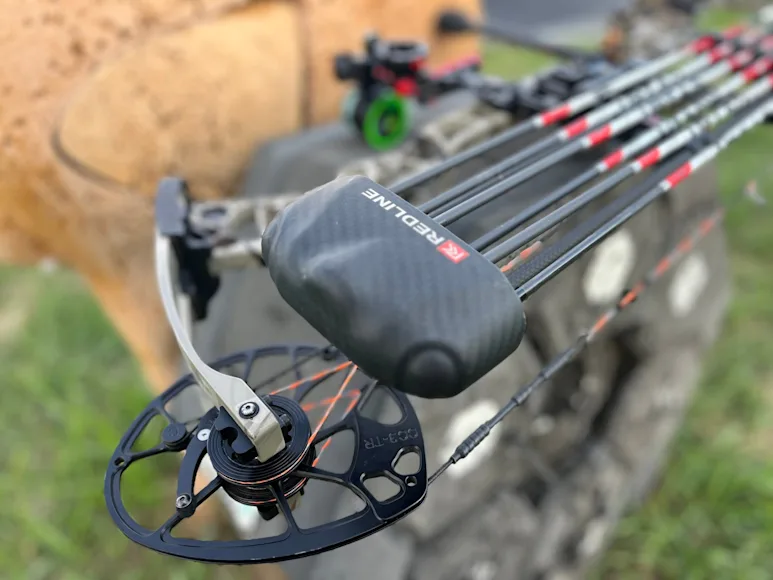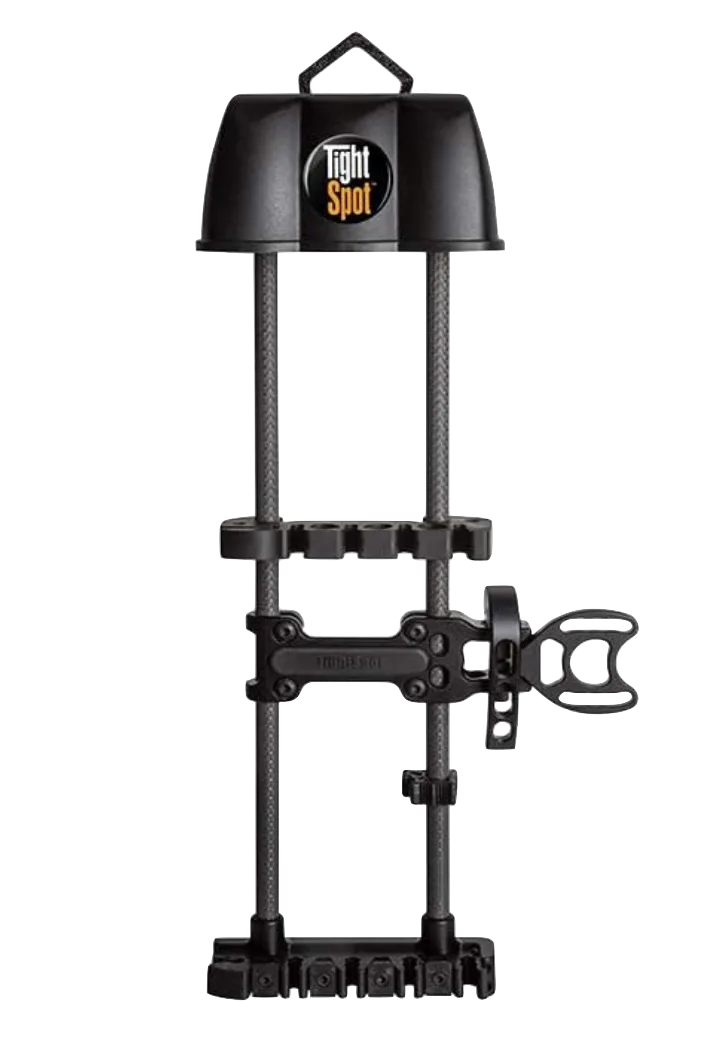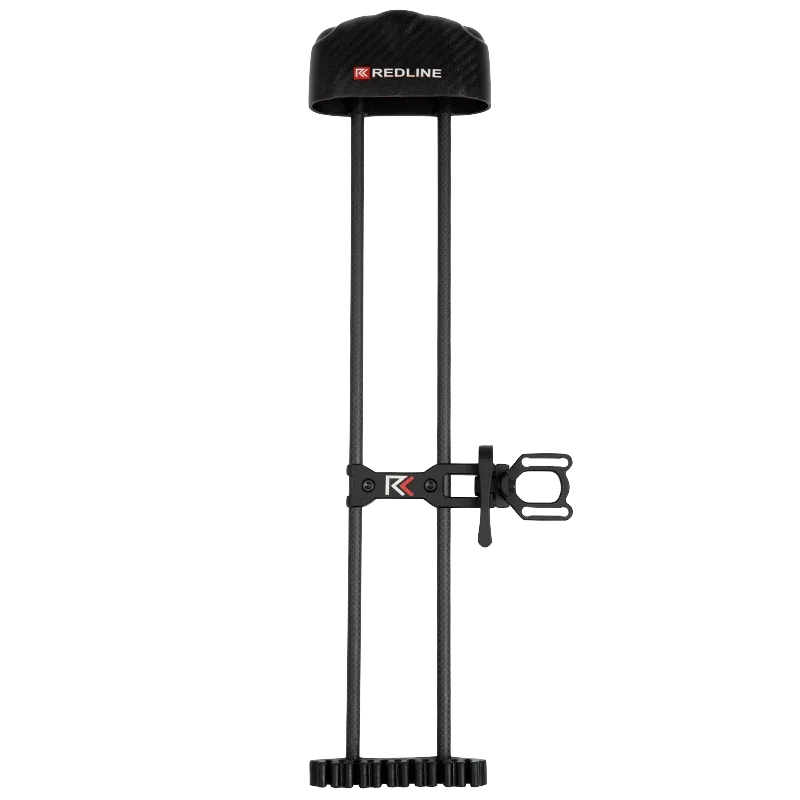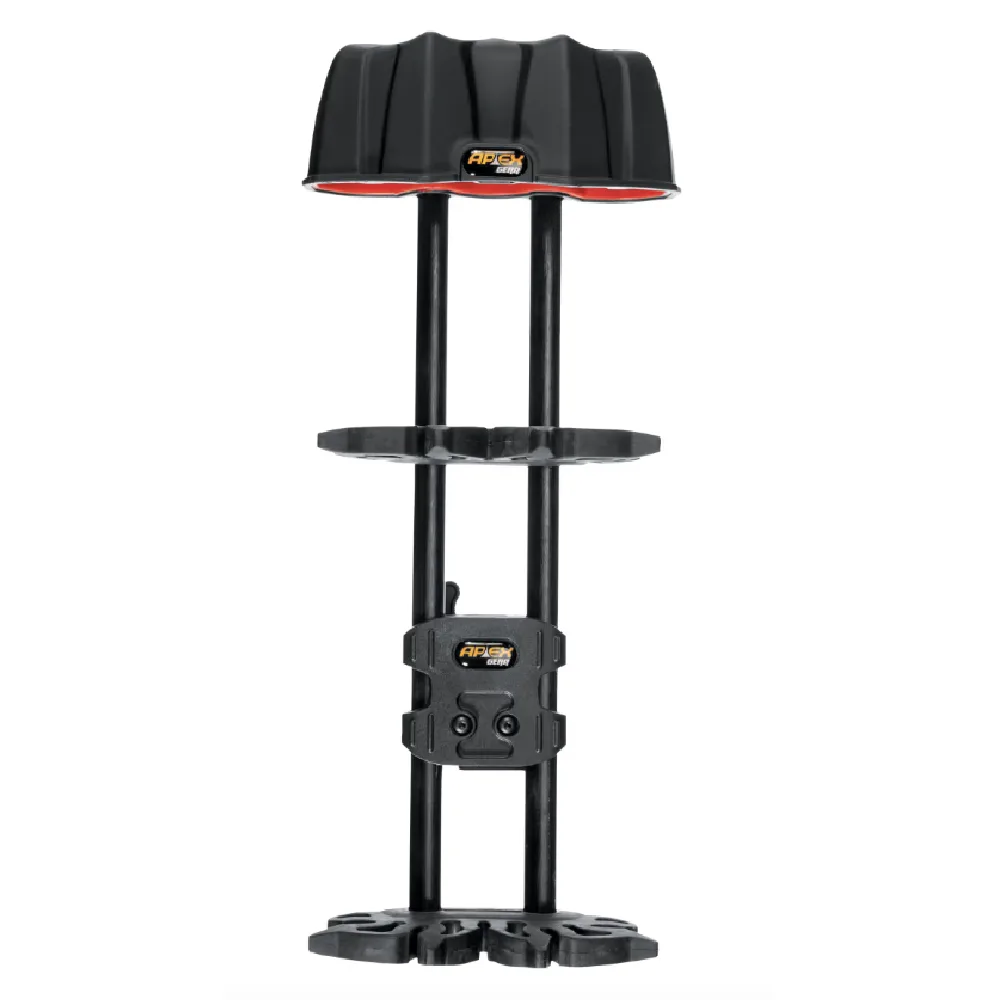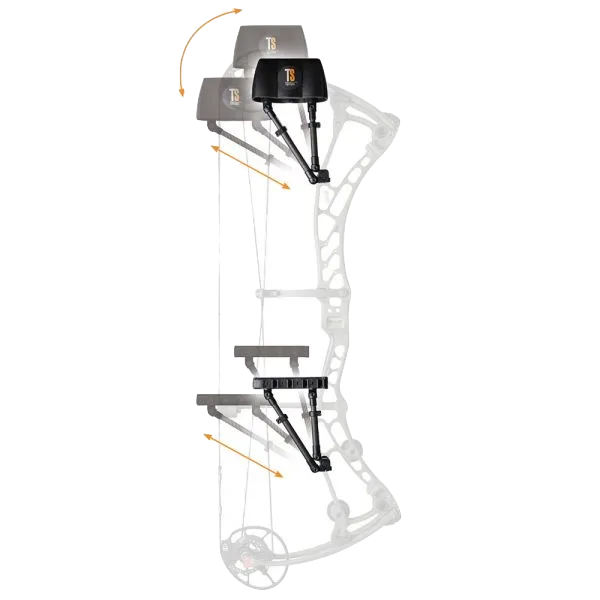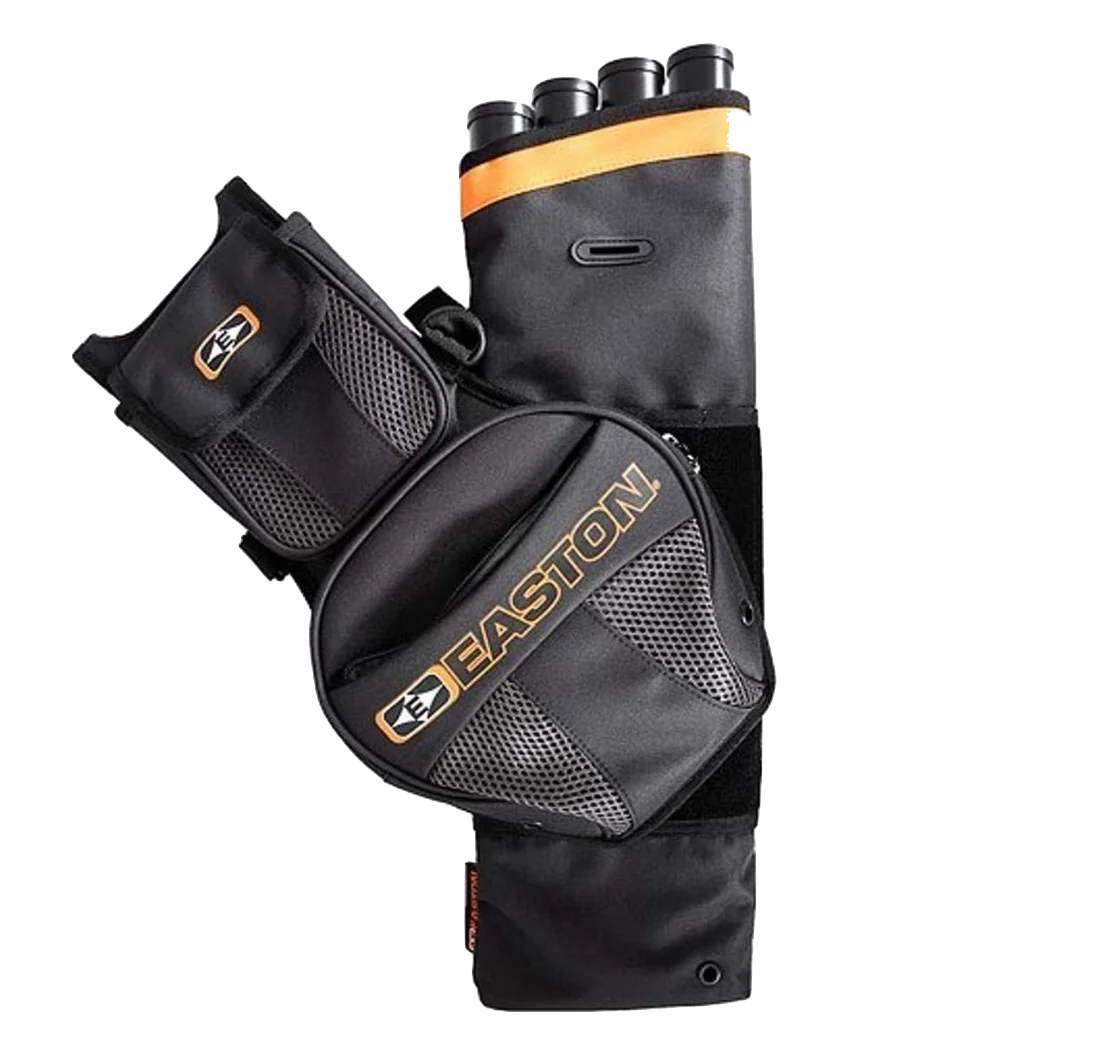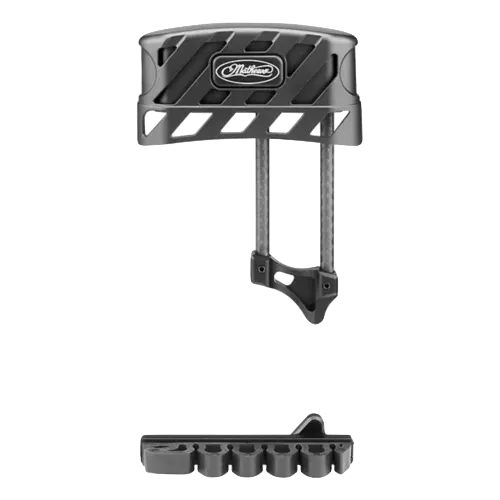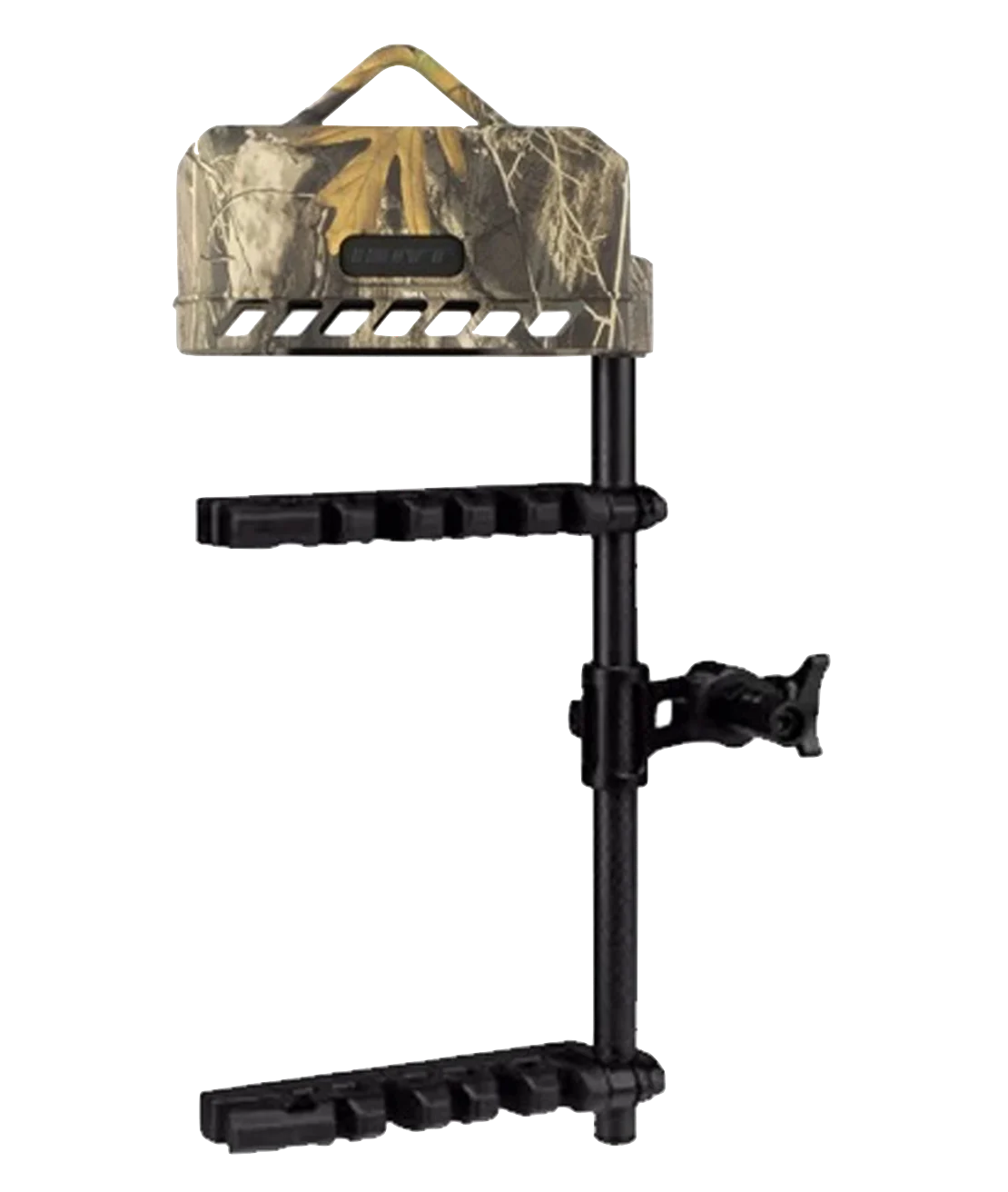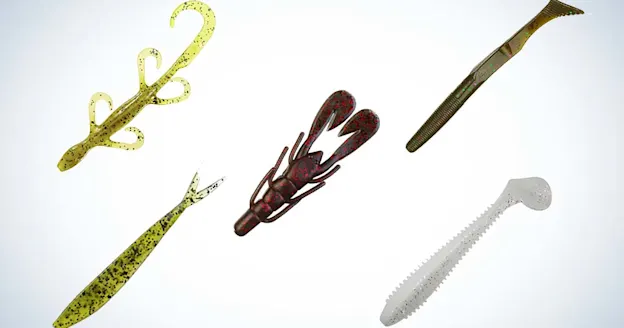We may earn revenue from the products available on this page and participate in affiliate programs. Learn more
Bow quivers don’t get a lot of love, but they should. Many archers will drop over a grand on a new flagship bow and outfit it with a fancy sight, drop-away rest, and even add a pricy front- and back-bar stabilization system. Then, that same archer will spend $40 on a cheap plastic quiver. Bad idea. The quiver you choose is essential to your accuracy and ability not to spook animals.
Don’t skimp on your quiver. It’s a bow-mounted accessory that holds your arrows and broadheads and can directly impact your accuracy based on how well it pairs with your riser. Here are the best bow quivers you can buy.
Best Overall: TightSpot 5-Arrow
Best One-Piece: RedLine RL-1 Carbon 6-Arrow
Best Two-Piece: TightSpot Pivot 2.5 Fully Adjustable
Best Hip: Easton Flipside 4-Tube Hip Quiver
Best Budget: Apex Gear Reactor LTE
Best Mathews: Mathews LowPro Fixed
Best Hoyt: Hoyt Carbon SuperLite QD
Best Overall: TightSpot 5-Arrow Quiver
Specs
Weight: 9.9 ounces
Length: 19.75 inches
Arrow capacity: 5
Design: One-piece
Pros
Aluminum and woven carbon build provide an ideal strength-to-weight ratio
3-way adjustment
Attacks vibration and boosts bow balance
Hugs the bow’s riser tightly
Cons
Single arrow gripper
No hanger
This is my all-time favorite quiver, and I’ve been using it for over six years. During that time, TightSpot has made many tweaks and improvements to the 5-Arrow, resulting in a bulletproof product. The hood is vented and large and accepts all broadheads—mechanical and fixed. I also love that the quiver is fully adjustable up, down, forward, back, in, and out. This means total customization for the shooter. I’ve never been in love with the single gripper, but it is adjustable via an Allen wrench and will fit any arrow on the market. The design promotes balance, and the quick detach bracket makes on/off super easy. I have never had a single issue with this quiver, and I’ve used it from Canada to Florida and many locales in between.
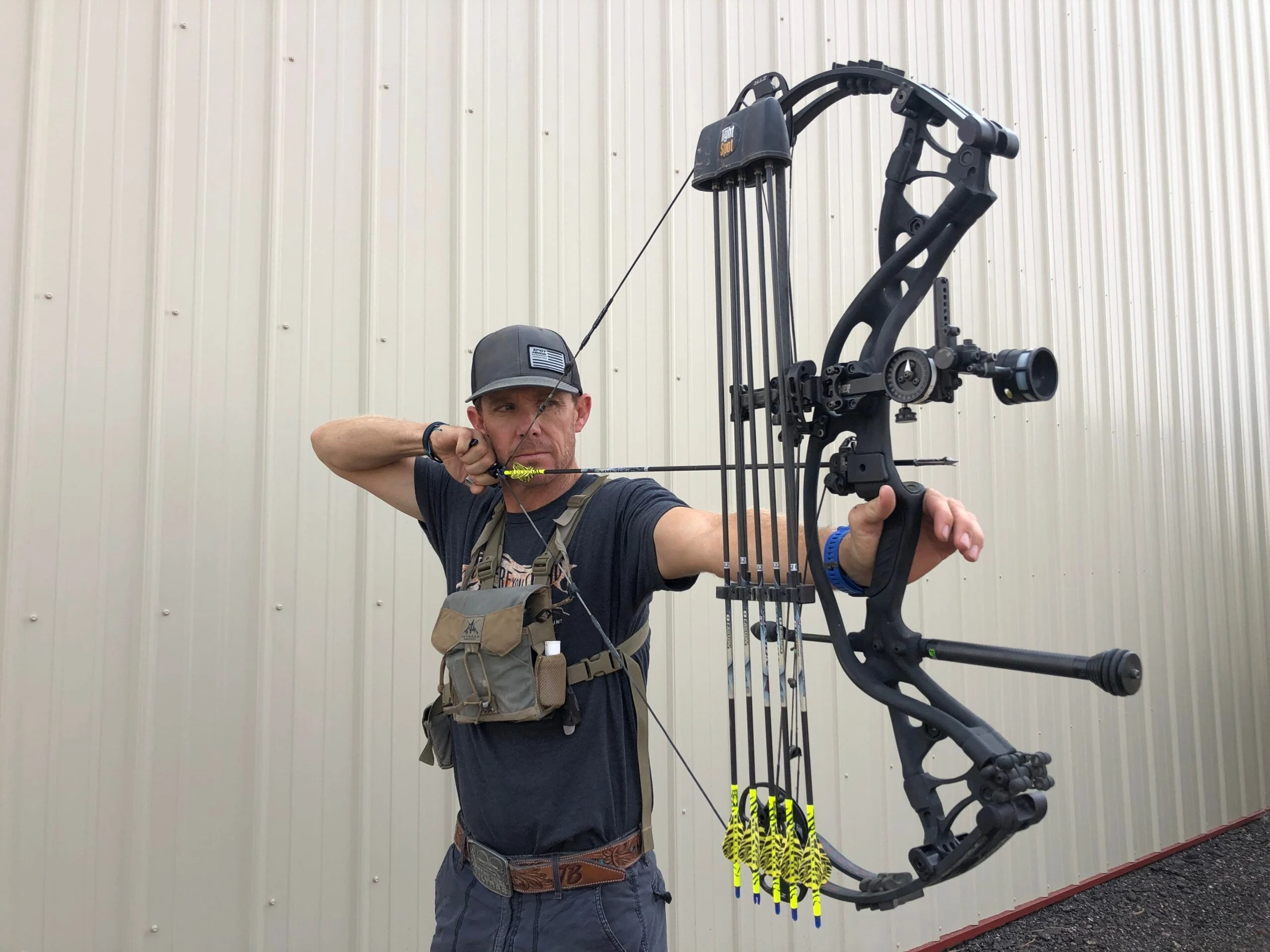
Best One-Piece: RedLine RL-1 Carbon 6-Arrow Quiver
Specs
Weight: 9.7 ounces
Length: 20 inches
Arrow Capacity: 6
Design: One-piece
Pros
All carbon design reduces weight and adds strength
Quick detach bracket for easy on/off
Soft-touch rubber arrow insert noise and post-shot vibration
Holds all arrow diameters securely
Cons
Expensive
This newcomer to the accessory market provides an impressive build in its ultra-sleek and lightweight RL-1 Carbon 6 Arrow Quiver. I am impressed with the under 10-ounce make in a one-piece 20-inch long quiver. The soft-touch rubber insert hood easily holds all broadheads and eliminates unwanted clangs and rattles. And the all-carbon build makes the quiver extremely durable. I have toted arrows in multiple diameters, and the gripper system is as solid as they come. A quick-detach bracket allows for rapid quiver removal. If you want to maintain Redline’s lightweight and durable build but only tote a trio of arrows, give the 3-arrow version of this quiver a go—you won’t be disappointed.
Best Two-Piece: TightSpot Pivot 2.5 Fully Adjustable Quiver
Specs
Weight: 9 ounces
Length: Adjustable
Arrow capacity: 5
Design: Two-piece
Pros
Triple-axis adjustment for maximum customization
Accepts fixed or mechanical heads
BullDog Arrow Gripper adjusts to fit any arrow diameter
Multiple adapters come with the quiver
Cons
Very expensive
If you’re a leave-your-quiver-on all-the-time bowhunter, this two-piece build is for you. It is the most adjustable two-piece quiver I have used to date. The triple-axis adjustment means you can move the hood and gripper individually in, out, up, down, forward, and back. The quiver’s design hugs the riser, and I love the BullDog Gripper, which allows the user to customize each arrow slot to ensure just-right arrow retention.
The Pivot 2.5 comes with multiple adapters so that it will fit almost any modern-day compound make. At only 9 ounces, it provides excellent strength without creating unnecessary bow weight. The pre-formed foam hood inserts handle fixed and mechanical broadheads with ease.
Best Hip: Easton Flipside 4-Tube Hip Quiver
Specs
Weight: 1 pound 13 ounces
Depth: 19 inches
Arrow capacity: A lot
Pros
Deep tube design holds longer arrows
Two accessory pouches included
Fits right- and left-handed shooters
Four tubes for arrow organization
Cons
Velcro belt design is hard to manipulate
From TAC shoots to slinging carbon in the backyard, this hip quiver is as solid as they come. The polyester fabric is bulletproof, and I appreciate the more extended tube design, which exposes less of the arrow. Four separate tubes allow for an exact arrow organization. The quiver can be worn on the shooter’s right or left side. Multiple pockets mean you can tote many accessories, and the adjustable belt fits any body type. I also appreciate that the belt allows for the addition of a water bottle pocket, release pouch, and other accessories.
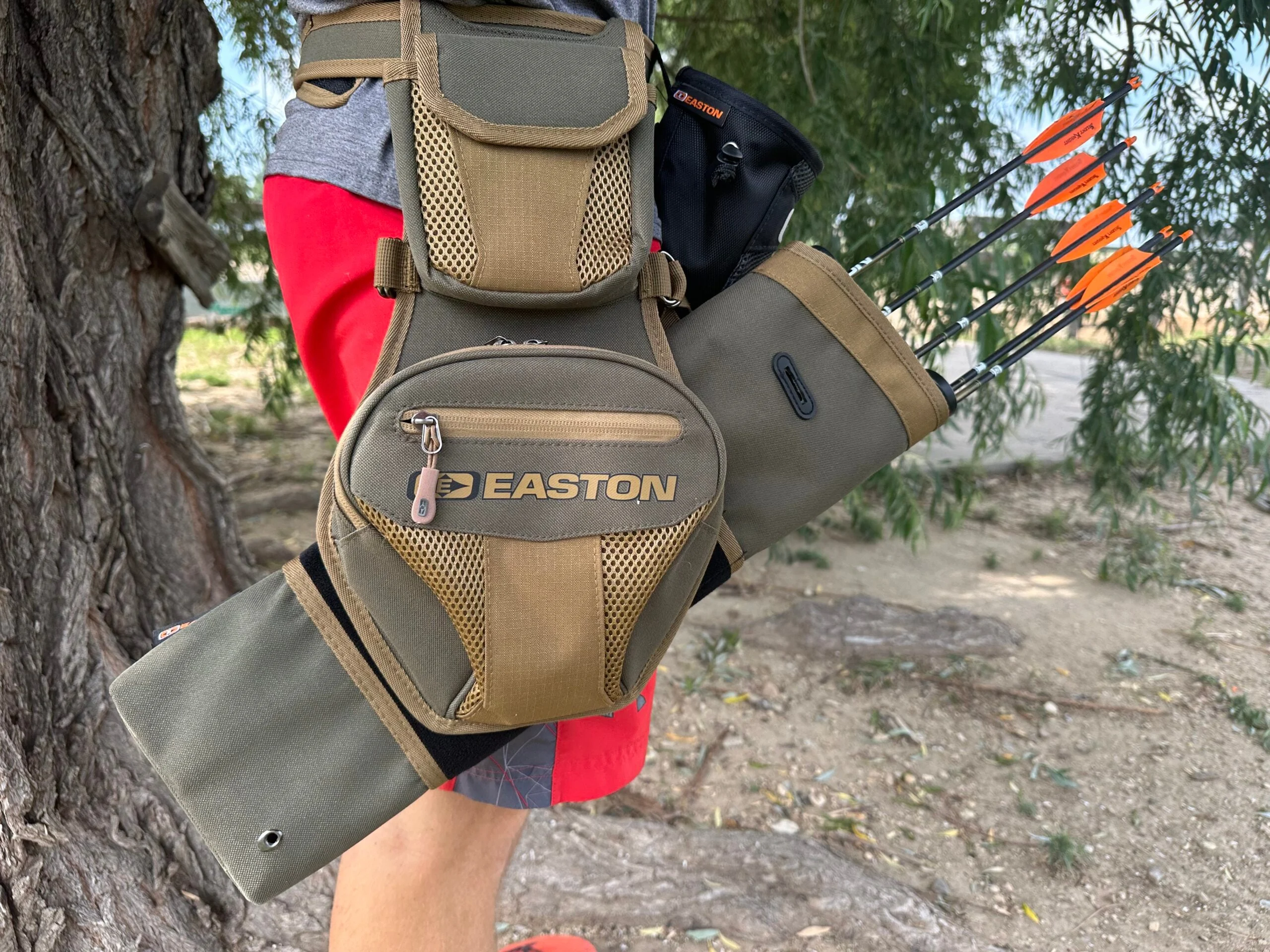
Best Budget: Apex Gear Reactor LTE Quiver
Specs
Weight: 8.1 ounces
Length: N/A
Arrow Capacity: 5
Pros
Tru-Touch soft-feel coating is quiet
Thumb tab allows for quick detach
Rubber hood liner won’t dull broadheads
Lightweight
Cons
Durability in the backcountry
I’m not much for budget accessories because most are incredibly sub-par. However, Apex’s Reactor LTE isn’t a wrong choice if you’re not planning to bowhunt in unforgiving terrain. The quiver’s composite construction keeps weight down, and I like the rubberized hood liner, which prevents broadheads from becoming dull while riding in the quiver. The low-profile Cam-Lock system is adjustable and allows the user to keep the quiver tight against the riser for increased bow balance. The thumb tab is flimsy and lacks durability, but if you baby it, it promotes easy on/off.
Like many Apex Gear products, the quiver is cloaked in Tru-Touch; a soft-feel coating that resists the elements and keeps noise down. I also like the double-gripper design, and I’ve had no arrow containment issues when using it.
Best Mathews: Mathews LowPro Fixed Quiver
Specs
Weight: 10.5 ounces
Length: N/A
Arrow capacity: 6
Design: Fixed
Pros
Extremely tight-fitting quiver
Promotes better bow balance
Works with Mathews’ BridgeLock Sight and Ultrarest Integrate MX system
Holds six arrows, not five
Cons
Expensive
Fits only Phase4, Image, and V3X Mathews Bows
If you’ve ever shot a Mathews bow, you know how smooth, quiet, balanced, and accurate they are. Mathews puts the same energy into making their bow-mounted accessory items.
This six-arrow quiver holds all broadhead makes, and the attached arrows sit ultra-close to the riser for improved bow balance. Combined with this two-piece quiver’s weight, you barely know it’s there, even when loaded with six ready-to-fly shafts. Finish options are many, and the gripper design holds arrows of all diameters snuggly. This tight-fitting quiver is an excellent addition to any Phase4, Image, or V3X Mathews bow.
Best Hoyt: Hoyt Carbon SuperLite QD Quiver
Specs
Weight: 7.8 and 9 ounces
Length: N/A
Arrow capacity: 4 or 6
Pros
Removable with quiver-hang hood design
Adjustable mounting positions for improved balance
Pre-cut foam hood insert
Large wingnut makes on/off easy.
Cons
Expensive
Limited to Hoyt bows
Like any of Hoyt’s vertical assassins, the SuperLite QD Quiver is as durable as they come. It is offered in either 4- or 6-arrow options, and archers can choose the finish. Designed to compliment Hoyt’s In-Line Accessory System, adjustable mounting positions allow you to move the quiver away from or toward your riser via a five-hole bracket that attaches to the riser of modern-day Hoyt builds. An oversized wingnut knob means an easy on/off design, and dual grippers hold arrows of all sizes tight and keep them quiet. I applaud the foam hood design with pre-cut broadhead slits to reduce dulling, and the quiver can also be adjusted up and down.
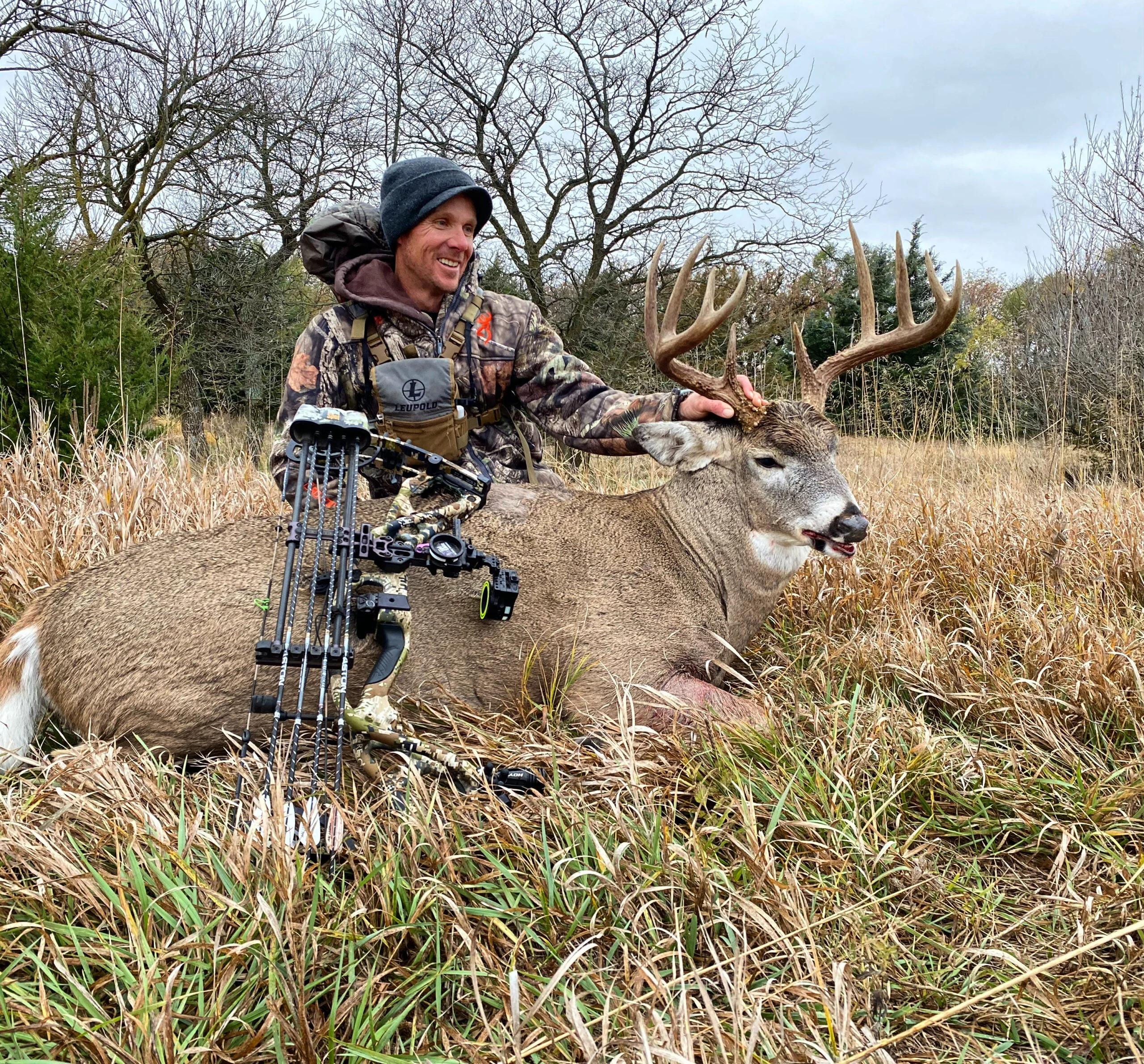
How We Picked the Best Bow Quivers
I shoot thousands of arrows throughout the course of the year and spend endless days hunting in the fall. That means the quivers on my bow get used…a lot. I shoot with them in every situation, whether at the range, TAC event, or on an actual hunt. And that’s the only way to test them—in the field.
There’s more to a bow quiver than just holding arrows. They have to fit and mount perfectly on your bow and hold your arrows securely and quietly. I’ve used and shot with every bow quiver on this list. And I’ve also spoken and consulted with other seasoned bowhunters on their favorite quivers and why. Every recommendation below has been used, tested, and put through its paces.
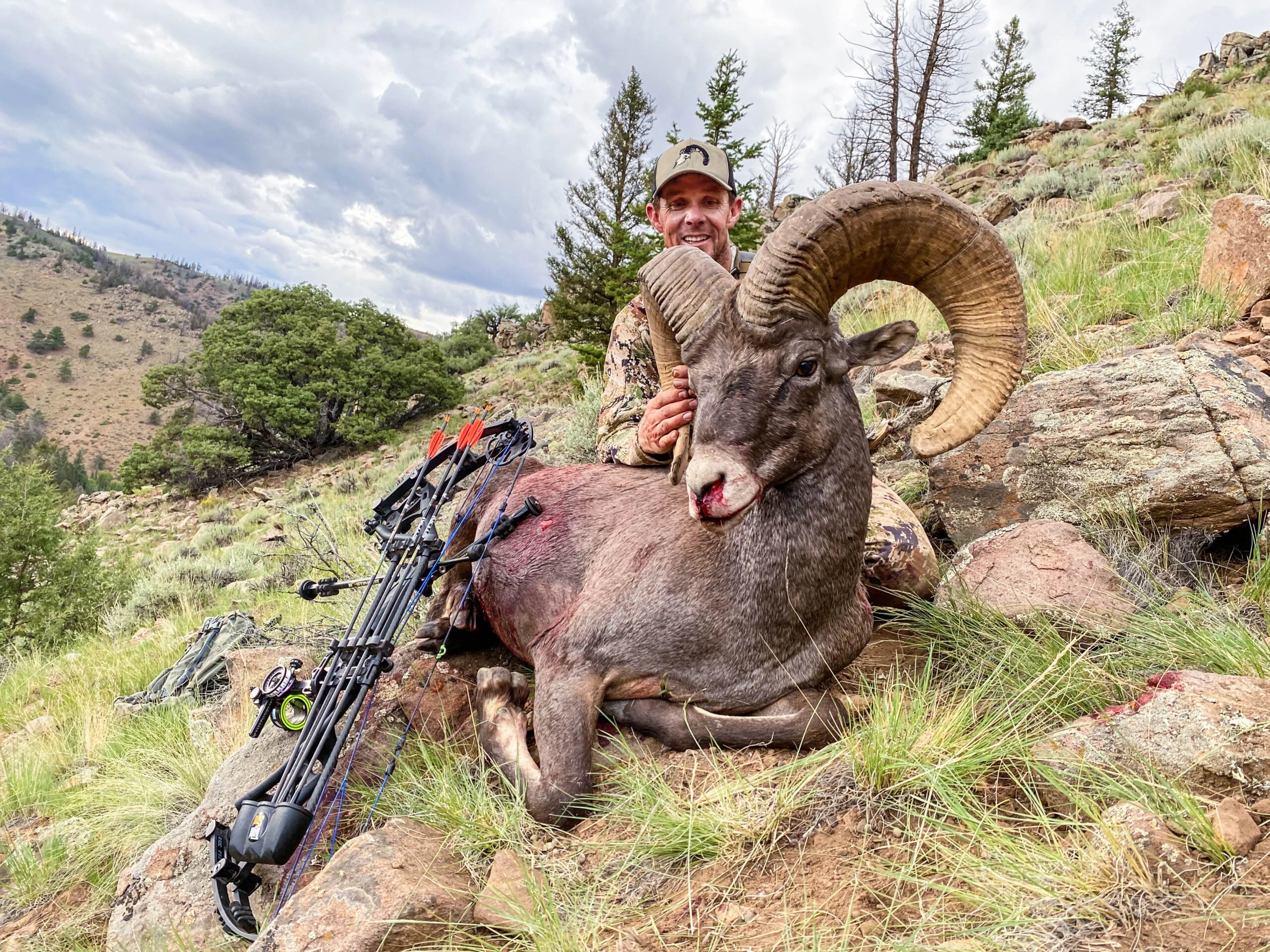
What To Consider When Choosing a Bow Quiver
In 2020, I was taking a newbie pronghorn hunter on his first spot-and-stalk bowhunt. During our first stalk, he had trouble keeping up because his micro-diameter arrows would fall out his quiver every few minutes. The quiver’s design did not hold 4mm shafts, which proved a problem. When we finally got close to a speed goat, his quiver sounded like a baby’s rattle when he drew. The hood design was poor, and his mechanical broadheads vibrated against it. This noise spooked the buck.
That is just one example of how a poor quiver can ruin a hunt. So, before making a quiver buying decision, think about how you hunt. Are you a whitetail nut who knows you will remove your quiver the second you get in the tree or blind? Do you practice regularly with your quiver off? If so, you can go with a more budget-friendly one-piece quiver that promises easy on/off. If you’re a western stick-and-stringer who knows getting your quiver on-and-off the bow isn’t feasible, I recommend a top-end one- or two-piece quiver that hugs the riser and holds all diameters of arrows securely. The main thing is matching your quiver to how you hunt.
FAQs
Q: How many arrows should my quiver hold?
There’s a reason quiver manufacturers build quivers with three-, four-, five-, six-, and seven-arrow capacities. That reason is options. If you’re taking on elk or mule deer high in the Rockies and bow weight is a concern, and your shooting confidence is high, a lighter weight three- or four-arrow quiver is an excellent go-to. If you plan to jump in a treestand, remove your quiver, and hang it, I like a six- or seven-arrow quiver, especially if hogs are on the menu and multiple shot opportunities may arise.
The five-arrow quiver is an excellent tweener and is the choice of most bowhunters. If you’re on the fence about what arrow capacity you should go with, a five-arrow is a solid choice.
Q: Should I get a fixed or detachable quiver?
Again, what style of quiver you choose is up to you. I like a detachable quiver because I hunt many different species, shoot 3-D events, and target archery. I want to be able to take my quiver on and off as I see fit. The one advantage of a fixed quiver is you build maximum consistency because the quiver is permanently attached to your bow. If my bowhunting ventures were all Western, I would opt for a fixed-positon quiver.
Q: How much do quivers cost?
Like all bowhunting accessories, the price reflects the quality and the number of technologies the builder has poured into the design. Most budget quivers will be between $35 and $60, but premium builds will be between $100 and $200. Remember, don’t skimp on quiver quality. Quivers don’t get much attention in the bowhunting accessory world, but they should.
Final Thoughts
Your quiver should hold your arrows tight, but not too tight. They should also be adjustable, hug your bow’s riser, and have a quiet hood design that doesn’t dull the sharp point on the end of the arrow. The quiver needs to be durable and should feel like a part of the bow at full draw, not extra weight you want to shed. Do your research and find a quiver that will fit your shooting needs, and you’ll likely never have to drop any greenbacks on another model unless you choose to do so.
Why Trust Us
For more than 125 years, Field & Stream has been providing readers with honest and authentic coverage of outdoor gear. Our writers and editors eat, sleep, and breathe the outdoors, and that passion comes through in our product reviews. You can count on F&S to keep you up to date on the best new gear. And when we write about a product—whether it’s a bass lure or a backpack—we cover the good and the bad, so you know exactly what to expect before you decide to make a purchase.

